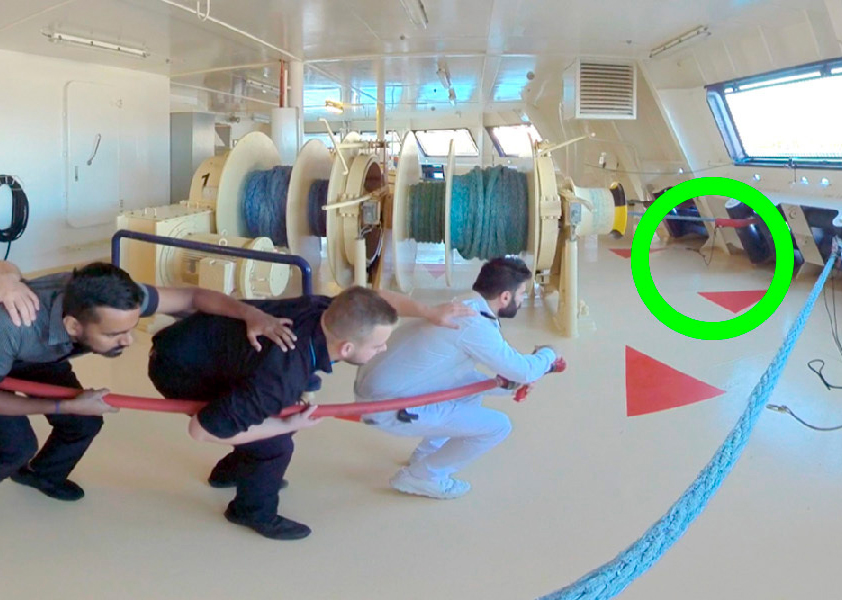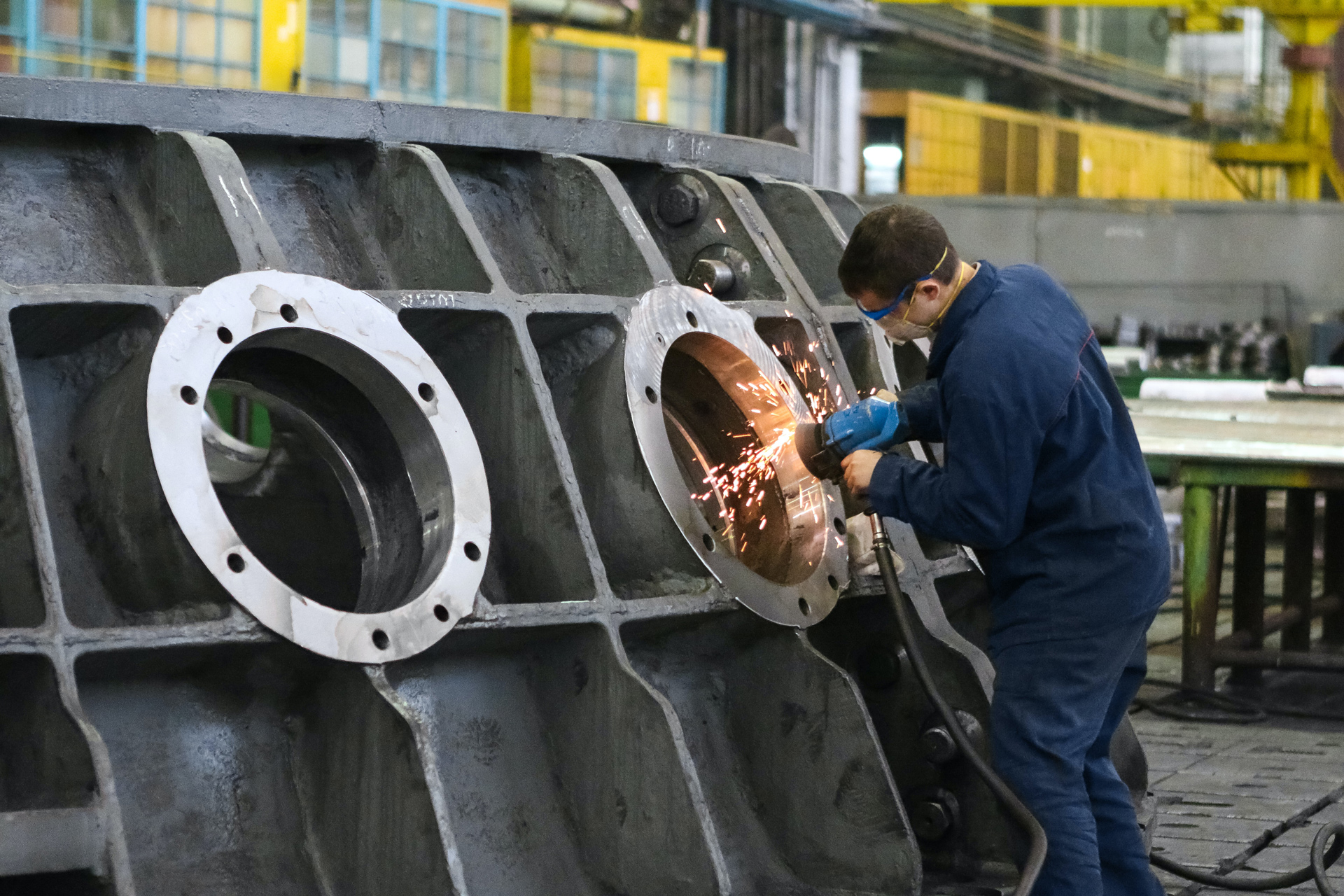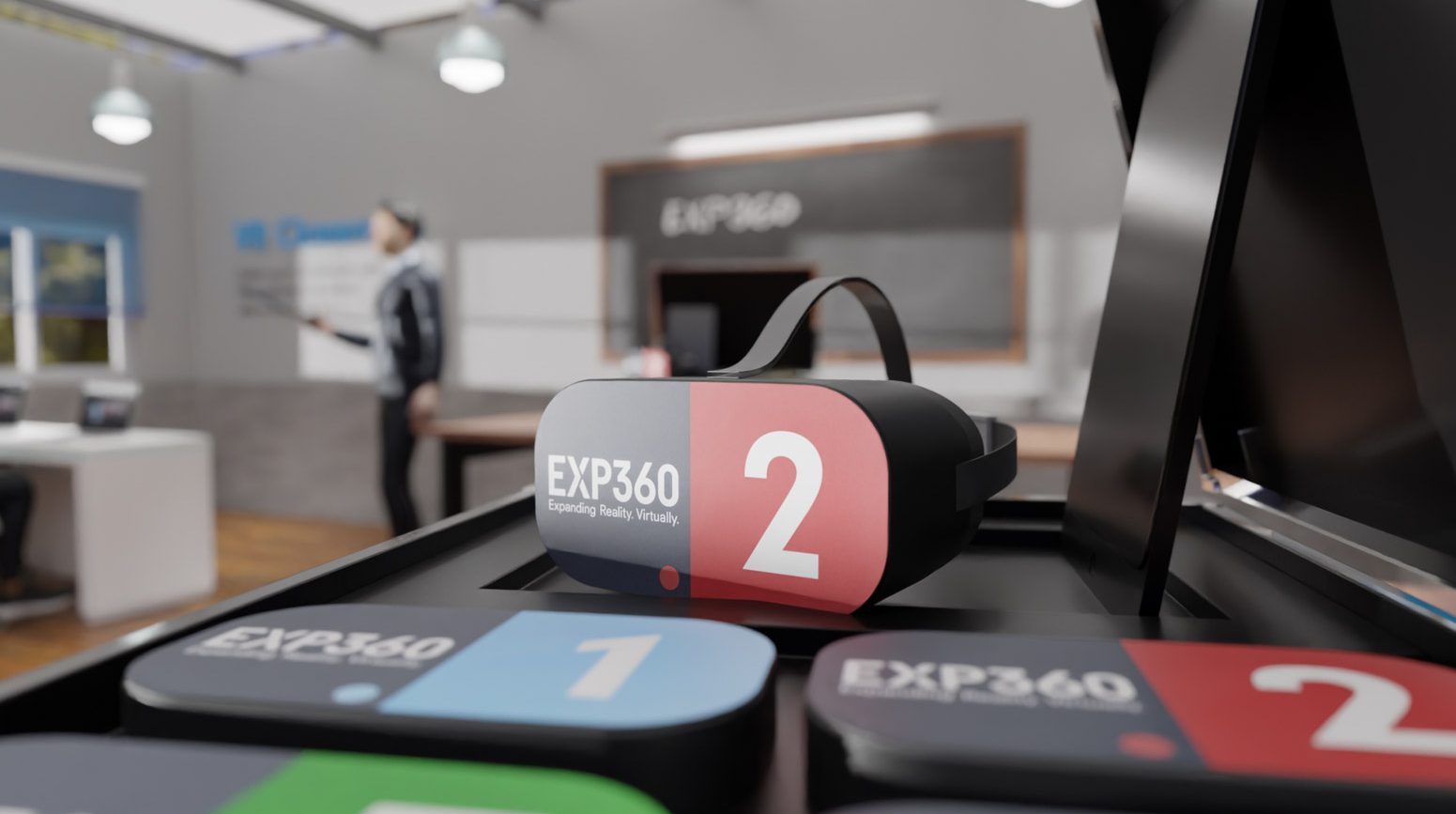Table of Contents
Introduction
Discover how EXP360 harnesses Virtual Reality in Business Training, transforming learning experiences across various industries with innovative VR solutions.
In an era marked by technological advancements and rapidly evolving workplace dynamics, businesses are seeking innovative solutions to train their teams efficiently and effectively. Central to this transformation is the implementation of Virtual Reality in Business Training, an immersive approach that promises a unique, engaging, and impactful learning experience.
EXP360 stands at the forefront of this revolution, offering an intuitive, cloud-based platform that redefines VR training across various industries. By harnessing the potential of VR, EXP360 is paving the way for businesses to upgrade their training programs, delivering the right content at the right time. This article delves into the myriad use-cases of EXP360’s VR solutions, demonstrating how industries are maximizing their training outcomes and fostering an environment of experiential learning through the power of virtual reality. Welcome to the future of business training!

The EXP360 Advantage: Enhancing VR Training
Virtual Reality is no longer just a buzzword, but an influential tool that’s transforming the landscape of business training. However, implementing VR into training curriculums isn’t just about employing flashy technology. It’s about leveraging it strategically to drive tangible results – a philosophy that is at the heart of EXP360.
EXP360’s robust, cloud-based platform integrates seamlessly with a wide variety of learning management systems (LMS), providing an efficient and accessible solution for businesses aiming to incorporate VR into their training programs. This compatibility allows businesses to manage and deliver their VR content across multiple channels and devices, ensuring that learners have access to training resources whenever and wherever they need.
One of the distinguishing features of EXP360 is the ability to repurpose 360° and VR content for multiple use-cases. This approach optimizes the value of your content and streamlines the content creation process, enhancing the overall efficiency and impact of your VR training programs.
Open formats are another cornerstone of the EXP360 Advantage. Our platform supports most open mono- and stereoscopic VR image & video formats, ensuring compatibility, flexibility, and control over your digital assets. This advantage is further amplified by the ability to replicate content to offline environments, like remote sites or ships, extending the reach of VR training programs.
In an age where digital experiences are progressively dominating the learning environment, EXP360 provides a platform that is designed not just to keep up, but to lead the way. Let’s explore how various industries are harnessing the EXP360 Advantage and elevating their VR training experiences.
Exploring VR Training Use Cases across Industries
Cruise Industry & Hospitality Training
The cruise industry and hospitality sectors face unique challenges when it comes to training. A diverse workforce, complex procedures, and high-stakes safety measures require an advanced solution. Virtual Reality, delivered via the EXP360 platform, brings a new dimension to this scenario.
Pre-Embarkation Training: Traditional onboarding processes can be time-consuming and inefficient. With VR, new crew members can virtually explore the ship or hotel even before they step aboard or on-site. They can familiarize themselves with their future work environment, key locations, and safety routes, easing their transition and increasing their preparedness.
Department Training: Whether it’s the galley, housekeeping, or the engine room, each department has its own intricacies. Customized VR training modules can simulate specific scenarios relevant to each department, providing hands-on training that transcends geographic and logistical limitations.
Hotel Basic Safety Training: Safety is paramount in the hospitality sector. VR takes safety training to a new level by simulating potential hazards like kitchen fires or electrical faults. Trainees can learn to respond effectively without real-world risks, ensuring they are ready for any scenario.
Fire Safety Training: In the cruise industry, VR Fire Training is a game-changer. Training in real-world fire scenarios poses numerous challenges. However, VR can simulate such incidents, providing crew members with the experience and knowledge to respond effectively to actual emergencies.
Language Training with VR: One of the biggest challenges in the cruise and hospitality industry is language barriers. With a global workforce, it’s essential for crew members to be proficient in common languages to ensure effective communication and service delivery. EXP360 presents an effective solution to this challenge by offering immersive language training with VR. Imagine learning new vocabulary in context, right inside a virtual representation of a cruise ship cabin or a hotel room. Learners can interact with various objects and spaces, identifying and learning the relevant terms in different languages, increasing the effectiveness of language acquisition.
By leveraging the advantages of VR and the EXP360 platform, the cruise industry and hospitality sector are able to provide enhanced training that’s not just efficient, but engaging and highly impactful.

Healthcare Education & Training
Healthcare is a domain where mistakes can have severe consequences, and hence, the importance of thorough, practical training cannot be overstated. Enter Virtual Reality, with EXP360 serving as the perfect platform for interactive, immersive, and effective training scenarios.
Medical Procedures & Surgical Training: Using Virtual Reality, intricate procedures can be simulated in a risk-free environment. From common procedures to rare, complex surgeries, every operation can be practiced, offering invaluable experience to medical professionals.
Patient Care & Empathy Training: Interacting with patients requires not only technical skills but also empathy and understanding. VR simulations can recreate patient interactions, helping healthcare professionals to improve their communication skills and emotional intelligence.
Hospital Orientation: Large medical facilities can often be confusing for new staff. With VR, they can be virtually guided through the premises, learning the layout and important locations, facilitating smoother navigation in real-time scenarios.
Emergency Response Training: In a critical field like healthcare, every second count. Emergency response training using VR simulations can prepare medical professionals for high-pressure situations, allowing them to respond promptly and effectively when the time comes.
VR Training for Medical Equipment: Using VR, healthcare professionals can be trained to use medical equipment in a hands-on yet risk-free manner. This can increase their confidence and competency, leading to improved patient care.
By capitalizing on the opportunities presented by VR and the power of the EXP360 platform, healthcare education and training can be significantly enhanced, driving improved patient outcomes and increasing the efficiency of healthcare professionals.

VR Industrial & Manufacturing Training
Manufacturing and industrial sectors are filled with complexities that demand hands-on experience and a strong understanding of safety protocols. Here’s where Virtual Reality, coupled with EXP360’s robust platform, truly shines by providing realistic, safe, and engaging training scenarios.
Safety & Fire Training: Safety is paramount in industrial settings. Using VR, you can provide immersive training for situations like fire emergencies, ensuring workers are well-equipped to handle real-world incidents. The virtual environment can simulate a variety of scenarios, fostering a comprehensive understanding of safety protocols.
Equipment Operation Training: Operating machinery and equipment in these sectors requires precision and knowledge. VR provides the chance to train individuals in a risk-free setting, ensuring they’re competent before they handle actual equipment.
Wayfinding in Industrial Facilities: Large industrial facilities can be a maze for new employees. Virtual reality wayfinding applications can be created with the EXP360 VR Cloud Tools, helping staff familiarize themselves with the site layout, thus improving efficiency and reducing the risk of incidents.
Process & Assembly Training: Understanding the sequence of operations in a production line is crucial for quality and efficiency. With VR, you can simulate the entire process, enabling staff to practice their tasks and understand the broader context of their work.
Maintenance & Repair Training: VR training can help staff master the procedures for maintenance and repair tasks. This hands-on approach ensures they are ready to tackle real-life issues while minimizing downtime.
By leveraging the power of VR and the flexibility of the EXP360 platform, manufacturing and industrial training can be transformed, reducing accidents, improving productivity, and fostering a workforce that is ready for any situation.

Oil & Gas Industry Training
The Oil & Gas industry, characterized by its harsh, dangerous, and geographically dispersed operational sites, can particularly benefit from VR training. Utilizing EXP360’s VR platform to conduct immersive training sessions not only boosts operational safety but also increases productivity and efficiency.
Safety & Emergency Training: VR training can simulate emergency situations such as fires, blowouts, or gas leaks. Such immersive learning experiences enhance the trainees’ ability to react effectively and promptly to real emergencies.
Equipment Operation & Maintenance: The operation and maintenance of complex machinery and equipment specific to the oil & gas industry can be effectively taught using VR. Trainees can familiarize themselves with equipment operations in a safe, virtual environment, minimizing the risks of on-site training.
Hazard Identification Training: VR training can help staff recognize potential hazards in their working environment, promoting a culture of safety and awareness.
Remote VR Training: Often, oil & gas sites are situated in remote and hard-to-reach locations. Virtual Reality provides an efficient solution for training workers, regardless of their geographical locations, without the need for travel. By using EXP360’s VR platform, training can be conducted off-site, with the cloud infrastructure enabling instant delivery of 360° content across multiple channels.
What’s more, the platform offers a powerful content replication feature, ensuring that even in offline environments, such as ships or remote sites without consistent internet connectivity, training can continue unabated. This offline capability ensures that employees always have access to crucial training materials, furthering the value of VR in such industries.
In this manner, integrating Virtual Reality in business training allows the Oil & Gas industry to significantly enhance worker safety, improve operational efficiency, and reduce costs associated with traditional training methods. The versatility and multi-channel capabilities of EXP360, including its robust offline functionality, make it an ideal platform for delivering such transformative training experiences.

Real Estate & Architecture Training
Virtual Reality offers an impactful platform for real estate and architecture professionals to convey intricate designs, blueprints, and property layouts in a visually stunning and immersive way. It enables agents, architects, and clients to navigate through property designs virtually, fostering a clearer understanding and fostering efficient collaboration.
EXP360’s VR platform elevates this process, empowering users to explore and engage with these virtual environments at their leisure, thereby heightening engagement and comprehension. For instance, real estate agents can acquire a comprehensive knowledge of properties without physical visits, which enhances their readiness to respond to clients’ questions effectively. Likewise, architects can employ VR to interpret and convey their designs powerfully, encouraging a more streamlined design and construction process.
A standout feature of EXP360 is the ability for Remote VR tours. This allows multiple parties to simultaneously explore a property, regardless of their physical location. An agent can guide potential buyers through a property in real-time, pointing out features of interest or answering questions on the spot. This fosters a sense of shared experience and connection, even from a distance.
Moreover, thanks to EXP360’s multi-use content capability, these VR experiences can be swiftly repurposed for marketing materials, client presentations, and more. The platform’s compatibility with open formats ensures smooth integration with a variety of software tools prevalent in these industries, offering a comprehensive solution for VR training in the context of real estate and architecture.

Education & Training for Schools and Universities
The power of Virtual Reality in the educational landscape is transformative. It offers students immersive, interactive experiences that boost engagement and facilitate a deep understanding of complex concepts. With VR, learning moves beyond passive absorption to active participation, making it an effective tool in a variety of educational settings.
EXP360 stands out as a catalyst in this educational revolution, offering schools and universities the opportunity to create and manage interactive VR content tailored to their curriculum. Whether it’s taking students on a virtual field trip to ancient ruins, guiding them through a complex biological system, or enabling them to explore the vastness of space – the possibilities are limitless with EXP360’s VR platform.
In the university setting, faculties such as medicine, engineering, or architecture can benefit immensely from VR training modules. These faculties can employ VR to simulate real-world scenarios, complex procedures, or intricate models, offering students a risk-free environment to practice, explore, and learn.
EXP360 also integrates seamlessly with Learning Management Systems (LMS), making it easy for educators to distribute VR content, track student engagement, and evaluate performance. It’s a complete package that adapts to the evolving needs of education and training, offering a versatile and impactful learning experience to students of all ages and disciplines.
Envision a classroom where all students, equipped with VR headsets, embark on a guided virtual excursion together, following the cues of their teacher’s headset. This is made possible by the EXP360 Guide Kit feature, a tool designed specifically to enhance VR-based education and training.
The Guide Kit enables a single controlling headset (typically the teacher or facilitator) to guide the view and interaction of numerous other headsets in real-time. Imagine the effectiveness of a history lesson where students can simultaneously explore an ancient civilization, or a biology class observing the intricacies of the human body from the inside. The Guide Kit makes these scenarios possible, creating an immersive, shared VR experience that facilitates an enriched learning environment.
This feature takes VR education to another level, turning solitary experiences into shared, group interactions. It not only promotes engagement and knowledge retention but also fosters collaborative learning, an essential skill for students of the digital age. EXP360’s Classroom-VR is not just a tool; it’s an innovative approach that is reshaping how we perceive and conduct education and training.

Retail Employee Training with EXP360 VR Solutions
In a dynamic and customer-centric sector like retail, effective training is the cornerstone of success. Traditional training methods often fall short in delivering practical skills and realistic scenario-based experiences. Virtual Reality, however, stands out as a transformative solution, and with EXP360, the possibilities for immersive training in the retail industry are limitless.
EXP360 offers comprehensive VR training solutions that help retail businesses familiarize their staff with store layouts, operation procedures, customer service etiquette, and more. The immersive nature of VR training means employees can virtually ‘walk’ through various in-store scenarios, gain product knowledge, and even rehearse interactions with customers. This hands-on experience not only enhances learning outcomes but also fosters confidence among new employees.
The ability to replicate various store environments, simulate high-pressure sales situations, or intricate product assembly procedures using VR content is beneficial for training consistency and efficiency. Additionally, the EXP360 multi-use content feature allows retail businesses to repurpose their VR experiences for different use-cases, streamlining content creation while enhancing its impact across the organization.
Finally, the integration of VR training with Learning Management Systems (LMS) allows for structured learning paths, progress tracking, and performance analysis. All these capabilities make EXP360 a valuable asset for retail businesses aiming to elevate their employee training strategies and drive business performance.”
Emergency Response & Safety Training
In high-risk industries and services, effective emergency response and safety training can be a matter of life and death. Traditional training methods may lack the practical, scenario-based training needed to equip workers with the skills to handle emergencies confidently and effectively. This is where Virtual Reality (VR), delivered through EXP360’s VR solution, becomes an invaluable tool.
With VR, you can simulate emergency scenarios that would be dangerous, expensive, or even impossible to recreate in real-life. Fire safety drills, evacuation procedures, or medical emergency response – these scenarios can be practiced repetitively in a safe, controlled VR environment, enabling trainees to gain vital hands-on experience.
EXP360’s VR ecosystem supports such training with unparalleled realism and interactivity. For instance, a VR Fire Training can walk the trainee through the steps to use an extinguisher or to navigate through smoke-filled environments. Similarly, safety training in high-risk environments like oil and gas fields or manufacturing units can include fall protection, hazardous substance handling, and machinery operation.
Furthermore, EXP360’s multi-channel playout and offline capabilities mean that trainees can access this critical training anytime, anywhere, even in remote or offshore locations. The multi-use content feature allows businesses to efficiently repurpose these VR experiences for multiple scenarios or roles, maximizing the training’s reach and effectiveness.
Incorporating VR training into your safety protocols can dramatically increase training engagement and retention, and ultimately, improve your organization’s safety performance. The EXP360 solution, with its ability to provide immersive, practical, and accessible training, is a game-changer for emergency response and safety training.
Virtual Reality in Aviation Training
In the aviation industry, where precision, safety, and customer service are paramount, effective training is critical. Using traditional methods can be expensive, logistically challenging, and lack the hands-on experience necessary for optimal learning. This is where Virtual Reality (VR), delivered through EXP360’s platform, can revolutionize training procedures.
EXP360 enables comprehensive and immersive training modules that can simulate real-life situations, such as cabin crew procedures, emergency evacuation, and cockpit familiarization. Trainees can rehearse procedures, understand aircraft layouts, and even manage challenging scenarios such as unruly passengers or medical emergencies, all in a safe and controlled VR environment.
Beyond in-flight scenarios, ground staff can also benefit from VR training, learning vital skills such as aircraft maintenance, luggage handling, and airport operations. The benefits are not just for staff – VR can also help passengers, by providing familiarization tours of airports or aircrafts, easing the stress of travel.
Key to EXP360’s effectiveness is its capability to deliver content across multiple platforms and offline environments, perfect for an industry that operates across diverse and remote locations. The platform’s support for open formats and its cloud ecosystem means that a variety of content can be used, edited, and delivered efficiently. This multi-use feature allows airlines to repurpose the VR experiences for various roles and scenarios, maximizing the value and reach of the training.
With VR training through EXP360, aviation industry staff can improve their skills, confidence, and response time, enhancing not just their performance, but also passenger safety and satisfaction.
Travel Agent VR Training
The travel industry has always relied on the ability of travel agents to deliver an engaging and accurate representation of the destinations they sell. With virtual reality training offered by EXP360, this task becomes not only easier but far more effective and immersive.
EXP360 offers a platform for travel agents to familiarize themselves with a wide range of environments, be it hotels, resorts, cruise ships, or even specific tourist attractions. These immersive tours offer a 360-degree view and a realistic experience of the locations, allowing agents to gain firsthand knowledge without physically traveling there.
Whether it’s understanding the layout of a cruise ship, exploring the amenities of a luxury resort, or getting an immersive view of a tourist attraction, virtual reality training provides agents with the insights they need to guide and persuade their clients effectively. These virtual tours can be annotated with additional information such as services, special features, and promotional details, adding value to the learning experience.
A notable feature of EXP360 is its multi-channel playout capability, which allows training content to be accessed from various platforms – from mobile devices to VR headsets. It also supports open formats and offers an easy-to-use VR scene creator, making the process of creating immersive virtual environments extremely convenient.
More so, the multi-use content feature enables travel agencies to efficiently reuse the VR experiences across various use cases, maximizing the value of their content. The platform’s cloud-based nature enables travel agents to access the training content anytime, anywhere – a vital feature in a world where remote working is becoming the norm.
In summary, VR training with EXP360 empowers travel agents with a detailed and immersive understanding of the destinations they sell, allowing them to offer the best advice to their clients and drive sales effectively.

Conclusion
As we explore the dynamic landscape of VR training across various industries, it becomes clear that Virtual Reality is not just a trend – it’s a revolutionary training tool. From emergency response scenarios in the cruise industry, healthcare procedures, industrial safety protocols, architectural visualizations to language training in real-world contexts, VR is reshaping the way businesses train their workforce.
EXP360 stands at the forefront of this revolution, providing an intuitive, robust, and flexible VR ecosystem that caters to diverse training needs. The key features, including its integration with LMS systems, multi-channel playout, content replication to offline environments, and support for open formats, make it an ideal solution for businesses seeking to implement VR training.
By leveraging EXP360, companies can deliver immersive, engaging, and effective training experiences, thereby enhancing employee skills, improving operational efficiency, and ultimately driving business growth. The future of business training is here, and it’s immersive, interactive, and incredibly effective – thanks to the power of Virtual Reality and the versatility of platforms like EXP360.
Photo by Zbynek Burival on Unsplash



